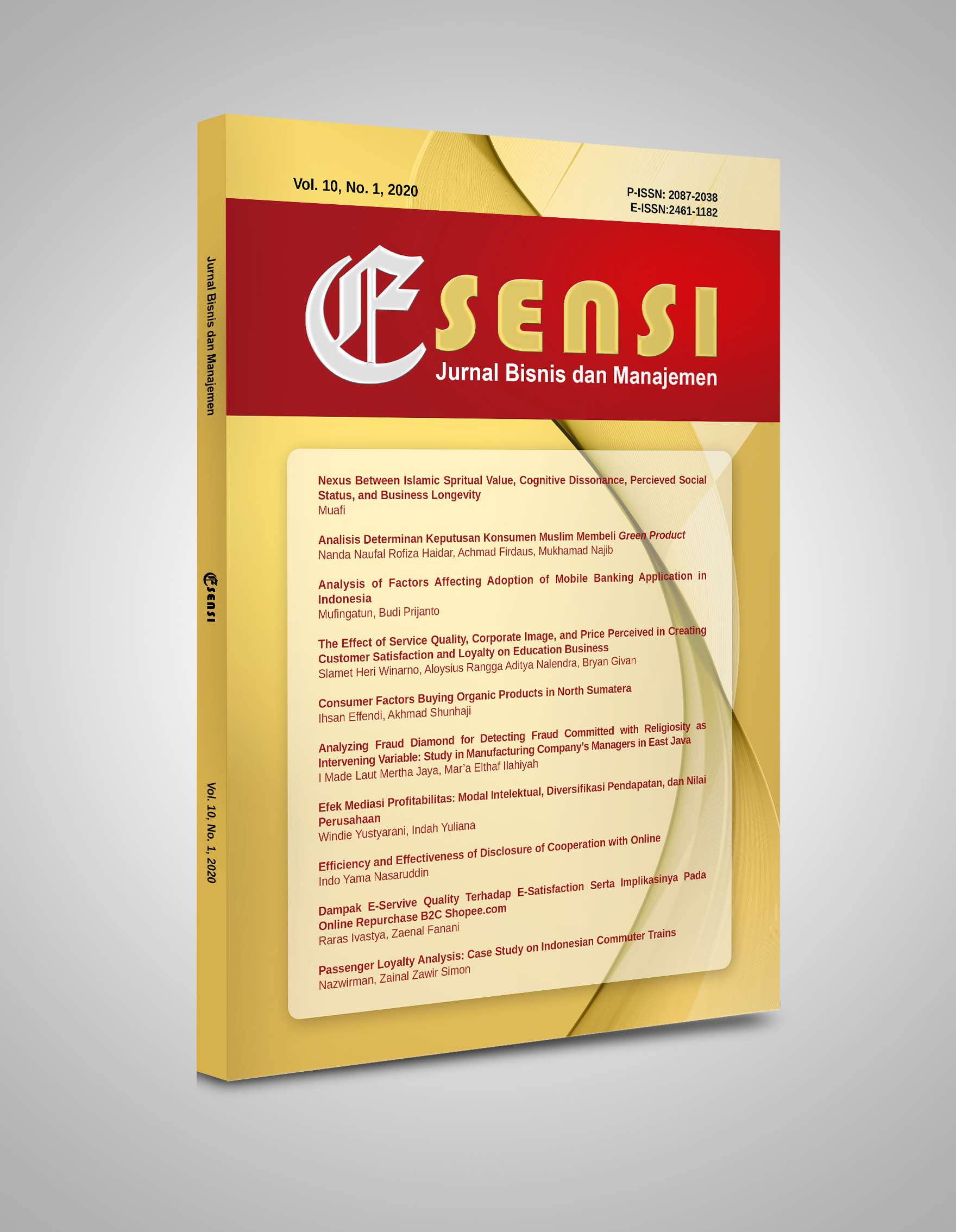Consumer Factors Buying Organic Products in North Sumatera
DOI:
https://doi.org/10.15408/ess.v10i1.18476Keywords:
Organic Products, Purchasing DecisionsAbstract
The market condition for organic products in Sumatera Utara is still very small. This can be seen from the very few companies engaged in organic products. The market is very small due to low consumer awareness and consumer knowledge of organic products. This research was conducted to analyze the characteristics and behavior of consumers about organic products in Sumatera utara. The locations of research activities are Medan, Binjai, Deli Serdang, Serdang Bedagei and Langkat. In addition, the lack of involvement of local governments and related institutions in encouraging the development of organic products is indicated by the low level of commitment in developing organic products in Sumatera utara. The results of this study indicate that organic knowledge, environmental science, health science, pricing and subjective norms are the factors that determine whether consumers buy organic productsReferences
Bartels, D. M., & Johnson, E. J. (2015). Connecting cognition and consumer choice. Cognition, 135, 47-51.
Batkoska, L., & Koseska, E. (2012). The Impact of Cognitive Learning on Consumer Behaviour. Social and Behavioral Sciences, 44, 70 – 77.
Belk, R. (1975). Situational Variables. Journal of Consumer Research, 2 (1), 157-164.
David, W., & Ardiansyah. (2016). A. Organic agriculture in Indonesia: Challenges and opportunities. Org. Agric, 6, 1–10.
Doni Purnama Alamsyah, Norfaridatul Akmaliah Othman and Hayder Alhadey Ahmed Mohammed.
The effect of agricultural land recovery on people's livelihoods in the context of urbanization in Vietnam. Management Science Letters 1961–1968
Jöreskog, K. G., & Sörbom, D. (1993). LISREL 8: Structural equation modeling with the SIMPLIS command language. Chcago: Scientific Software International.
Khosla, S. (2012). Consumer psychology: The essence of Marketing. International Journal of Educational Administration, 2 (2): 220-214.
Kotler, P., & Keller, K. L. (2012). Marketing Management, Global Edition 14 E. London: Pearson Education Limited .
Kotler, P., Amstrong, G., Saunders, J., & Wong, V. (1999). Principle of Marketing. New Jersey: Prentice Hall Inc.
Le, T., & Liaw, S.-Y. (2017). Effects of Pros and Cons of Applying Big Data Analytics to Consumers’ Responses in an E-Commerce Context. Sustainability, 9 (789), 1-19.
Makarewicz, A. (2013). Consumer behavior as a fundamental requirement. Journal of International Studies,, 6 (1), 103-109.
Sungkumchalianga , P., & Wen, C. (2012). Consumers’ Perceptions and Attitudes of Organic Food Products in Northern Thailand. International Food and Agribusiness Management Review, 15,(1), pp. 87-102.
Tarkiainen, A., & Sundqvist, S. (2007). Subjective norms, attitudes and intentions of Finnish consumers in buying organic food. British Food Journal, 107 (10/11), pp .808-822.
Willer, H., & Lernoud, J. (2016). The World of Organic Agriculture. Statistic and Emerging Trends 2016;. Bonn, Germany: Research Institute of Organic Agriculture FiBL: Frick, Switzerland; International Federation of Organic Agriculture Movement.
Xiofan Yu. Liyue Guo., Gaoming Jiang., Yanjie Song., and Mahmud Abdimuratovich Muminov.
Advances of Organic Product Over Conventional Production with Respect to Nutritional Quality and Food Security. Acta Ecologica Sinita. 38 (2018), 53-60

